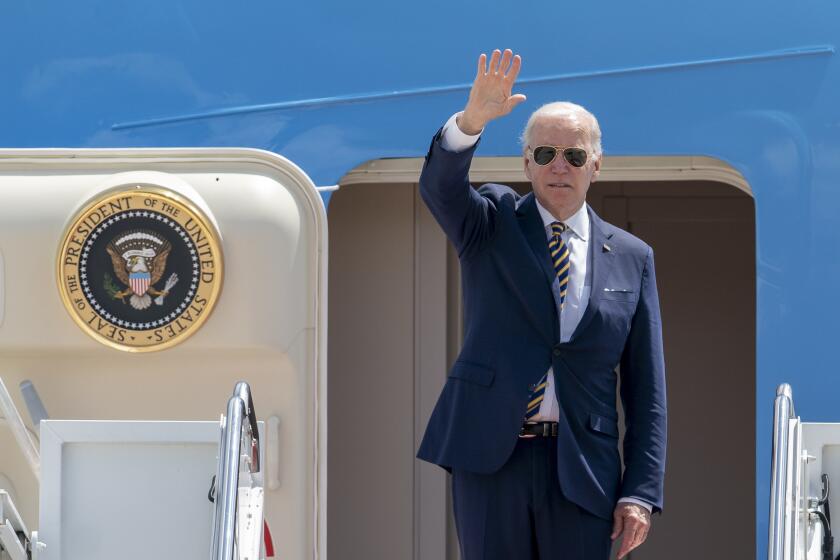War critics in Russia, facing continuing crackdown, turn to craftier, coded protests
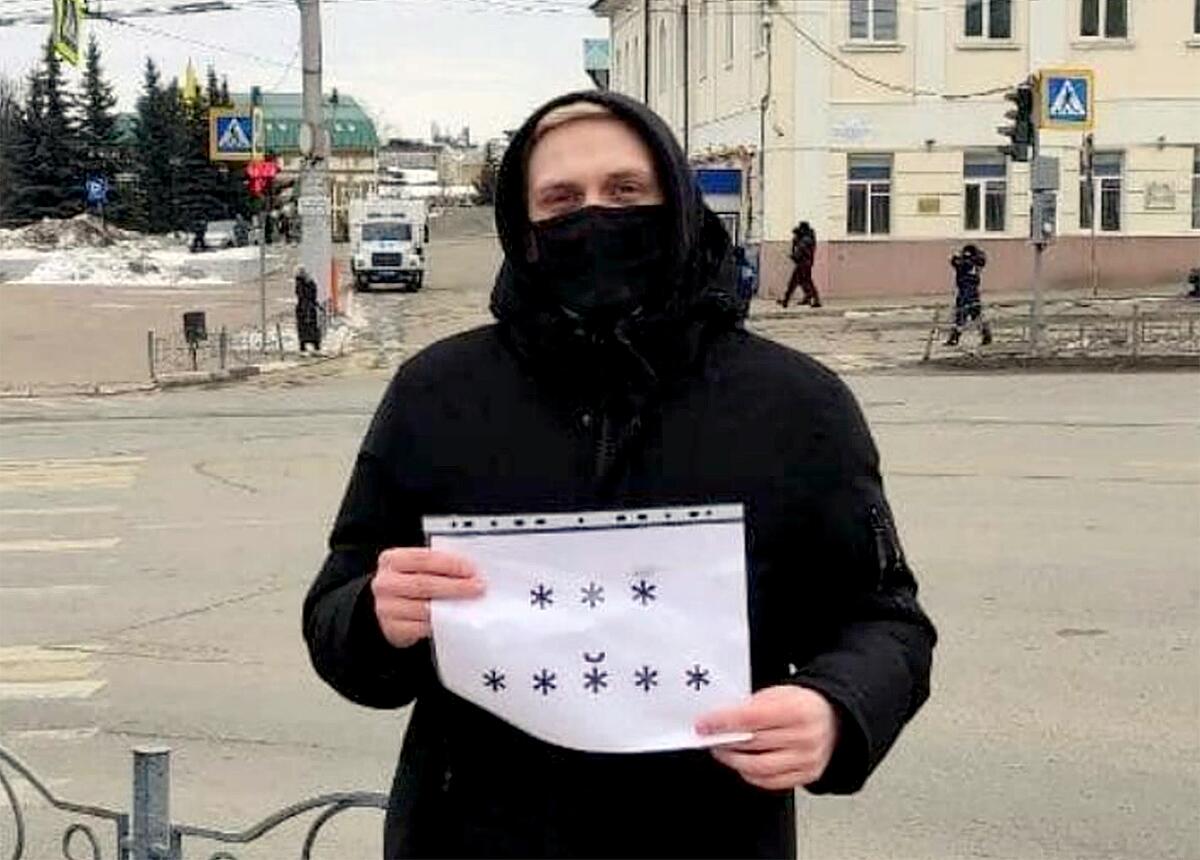
- Share via
BERLIN — A few weeks after Russia invaded Ukraine, Moscow resident Vera Bashmakova took a public stand, displaying a message on her car that was impossible to miss. The letters were so large that they covered the entire rear window of her orange 2014 Lada Granta. They read: Nyet Voyne, No War. A three-letter word followed by a five-letter word.
“I put the stickers there because I was outraged about the war in Ukraine,” the 38-year-old biologist said. “I believe that war cannot be a solution to any problem, it can only create new ones.”
A few days later, when Bashmakova was taking her 4-year-old daughter, Taisia, to kindergarten in a western district of the capital, her car was stopped by police. What followed was a fine of 30,000 rubles, about $480, for demeaning the armed forces of the Russian Federation.
Bashmakova is one of thousands of Russians who have paid a price for speaking their minds about the nearly three-month invasion. Depending on what is considered the severity of the offense, sanctions have ranged from fines to sentences of five days in jail to years in prison.
“People are definitely afraid,” said Alexandra Arkhipova, an anthropologist with a Moscow-based institute. This, however, does not mean that criticism has subsided. While boisterous public demonstrations have largely halted, protests have often moved to less direct forms.
When President Biden meets \ with leaders from Asia and Australia, he will face a slew of challenges tied to the war being waged by the Kremlin.
One means is placing asterisks on a sheet of paper and holding it up, three asterisks for the Russian word “no,” five asterisks for “war,” arranged one below the other. No words, no letters, only symbols — however, the meaning is easily decoded by any passerby.
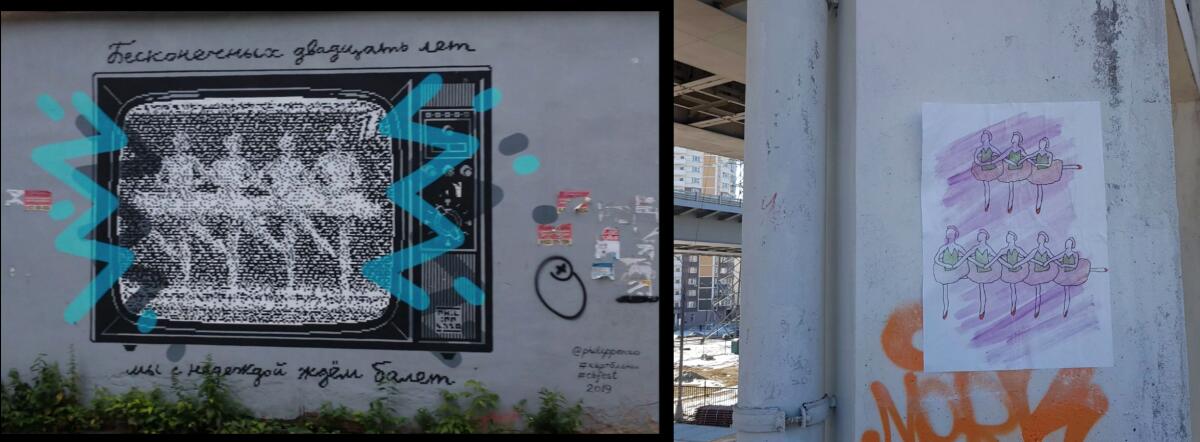
Sometimes the symbolism refers to the Soviet Union era, now gone for more than three decades. Whenever a Sometimes the symbolism refers to the Soviet Union era, now gone for more than three decades. Whenever a Soviet leader died, state television broadcast the Tchaikovsky ballet “Swan Lake.” Today, the symbols of “Swan Lake” — dancing ballerinas arranged in a row — can be found spray-painted on walls.
“The symbolism is clear and self-explanatory,” said Arkhipova. It expresses the desire to have a change of guards in today’s Kremlin.
“The goals of this guerrilla war is to break the information blockade and to get other Russians out of their comfort zone,” she said.
Coded protest can be subtle, ironic or bordering on the absurd. One flier pinned on a Moscow lamppost read: “A dog is lost! It ran away after Russia’s invasion of Ukraine. Its name is Future. Your kids will not have Future if you will not fight against the war right now. Thousands of Ukrainian kids have already lost their future. There will be a reward.”
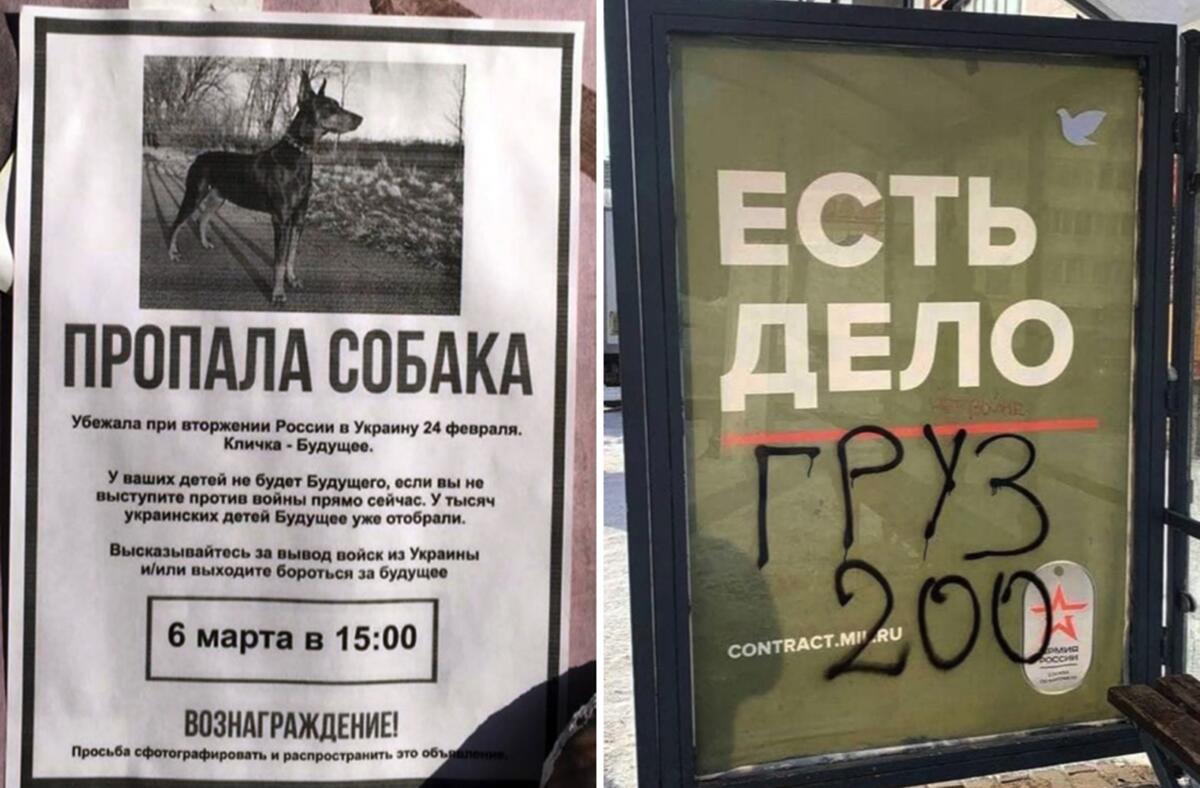
Another code word is the term Grus 200, or Cargo 200, which can be found scrawled on billboards or other public advertisements. Grus 200 refers to the transportation of body bags of fallen Russian troops home from the battlefield. It is military jargon that came into use during the Russian war in Afghanistan in the 1980s. It also has become a euphemism for irreversible losses in conflict.
Thousands of Russian soldiers have been killed in Ukraine, yet in Russia’s big cities, this reality has not fully hit home. According to the Ukrainian secret service, most of the deceased are from remote areas in Siberia, the south or the far east. Written on walls in Moscow and St. Petersburg, Grus 200 is meant to amplify war deaths among residents of the major cities.
Protesting remains dangerous, even when coded. Police are catching up with the creativity of protesters, at times arresting people holding up blank white sheets of paper. They often have help from others.
“We also see a big wave of denunciations,” Arkhipova said. “This seems to be directly related to Russian propaganda, which labels internal critics as enemies of Russia.”
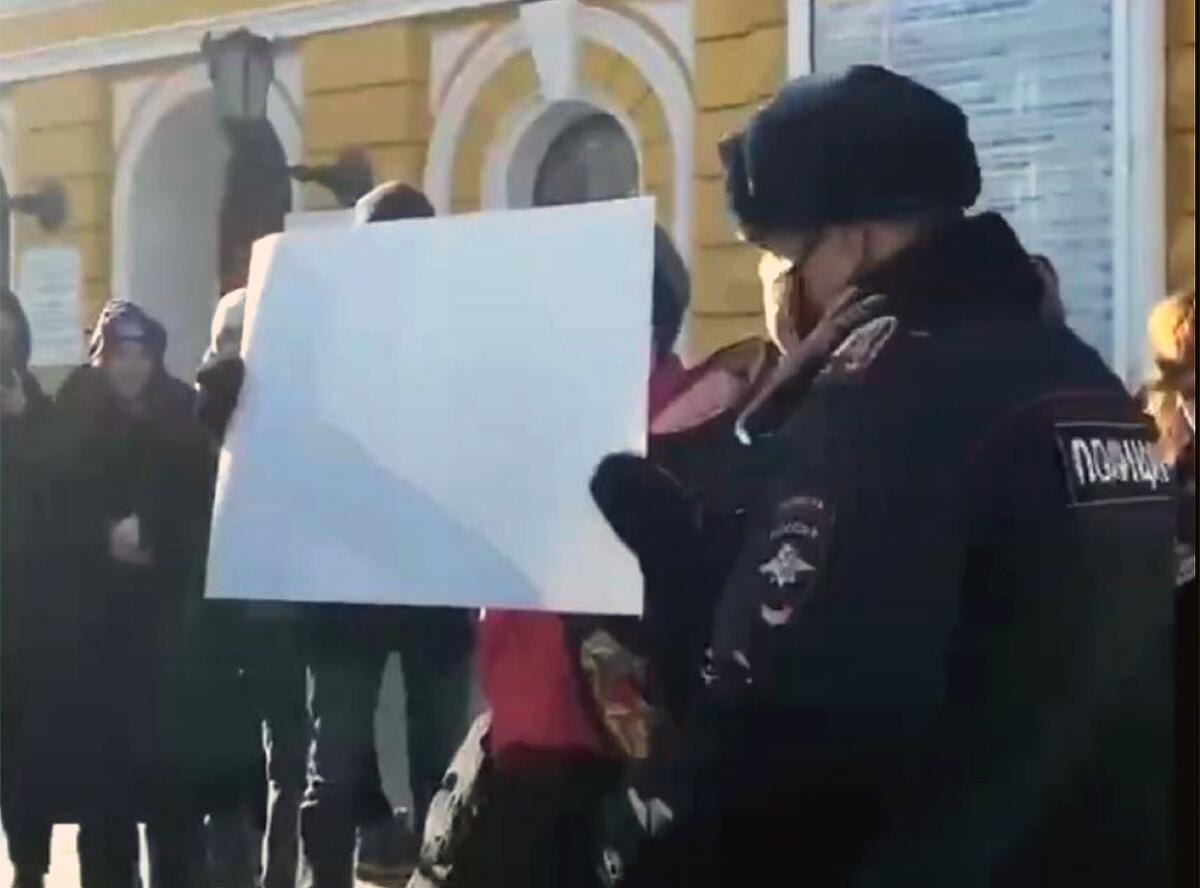
That goes back to statements by Russian President Vladimir Putin himself, who in mid-March called for a “natural and necessary self-detoxification of society.”
“Russians will always be able to distinguish true patriots from scum and traitors and will simply spit them out like an insect in their mouth, spit them onto the pavement,” Putin said during a virtual meeting with regional leaders.
Last month, the case of an English teacher from Korsakov, a small town on the Pacific island of Sakhalin, made waves. Marina Dubrova, 57, showed high school students a YouTube video in which children chanted in Russian and Ukrainian about a “world without war.” When asked afterward by some of her students what she thought about war, she replied, “I think war is a mistake.”
The conversation was recorded on a smartphone. “Eventually this recording ended up with the police,” Dubrova later told Siberia Realities, a media platform of Radio Free Europe/Radio Liberty.
The next day, she was summoned by the school principal to his office, where he told her not to politicize the students. Just a few days later, police officers came to the school with a complaint against Dubrova — for allegedly “discrediting” the Russian military. The Korsakov City Court sentenced the teacher to a fine of 30,000 rubles. Teachers in Russian provinces earn on average between 15,000 and 20,000 rubles a month.
The Russian judicial apparatus has a wide range of offenses that result in fines or prison, some of them put into place after the war began. According to OVD-Info, an independent Russian human rights media project fighting political persecution, nearly 15,500 Russians have been detained since the war began.
A new provision in the criminal code makes it a crime to call for an end to the war or to disseminate information about the war that does not toe the official line.
According to Arkhipova, at least seven citizens have been jailed for spreading information about massacres by Russian soldiers in the Ukrainian cities of Bucha and Mariupol. Other criminal offenses include shouting slogans against the government, posting negative articles on social media or spray-painting graffiti.
“There is a clear message being sent with all of this: You can get in trouble for anything. So don’t get involved in politics,” Arkhipova said. This is a clear breach of a tacit pact in society that has existed in recent years, she said. As long as a citizen does not interfere, the state grants a reasonably decent life. “But with the war, that pact was destroyed.”
Bashmakova, who was clear and direct in her protest, would not admit defeat so easily. When she was fined, she challenged the verdict. “I appealed because I believe that the inscription ‘No War’ does not discredit the armed forces of the Russian Federation in any way.” Last week, however, the court rejected the appeal. If she still does not pay, the 30,000 rubles will be automatically deducted from her bank account.
Ziener is a special correspondent.
More to Read
Sign up for Essential California
The most important California stories and recommendations in your inbox every morning.
You may occasionally receive promotional content from the Los Angeles Times.
